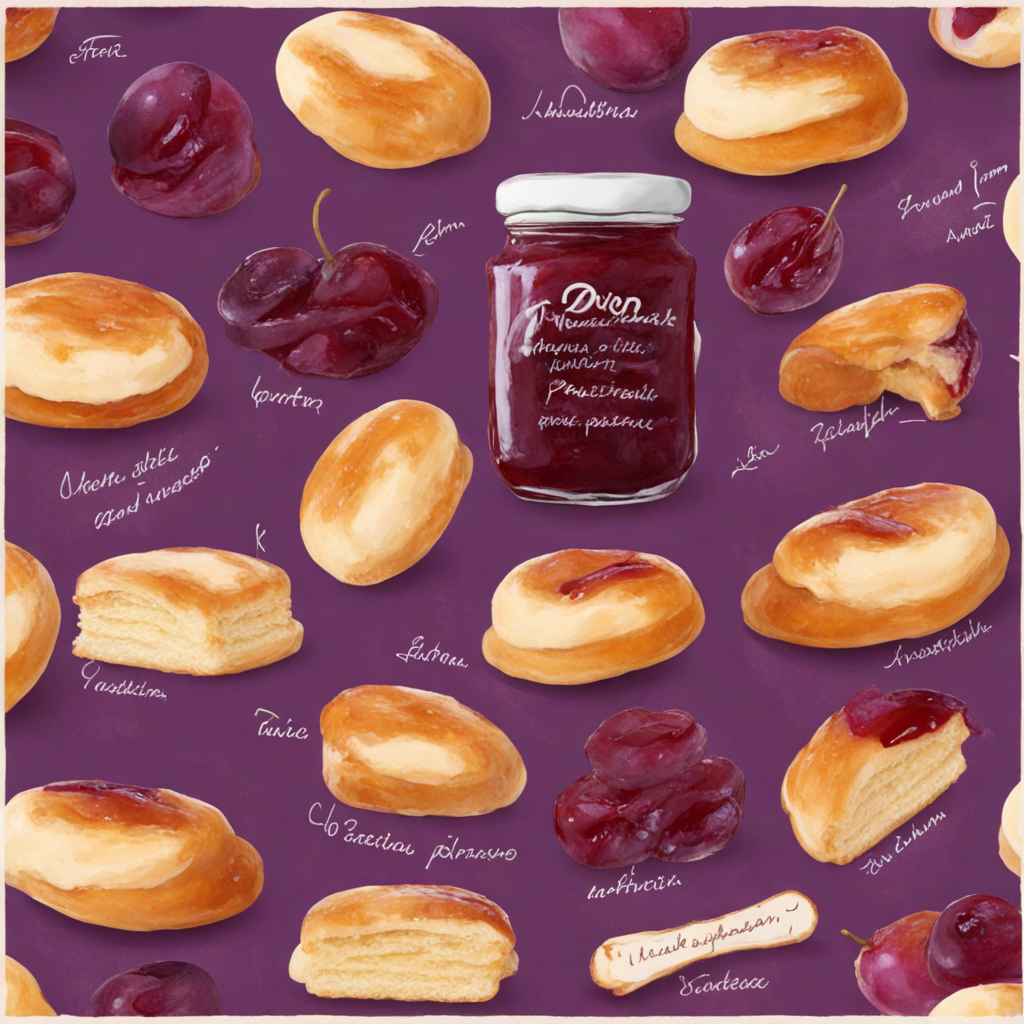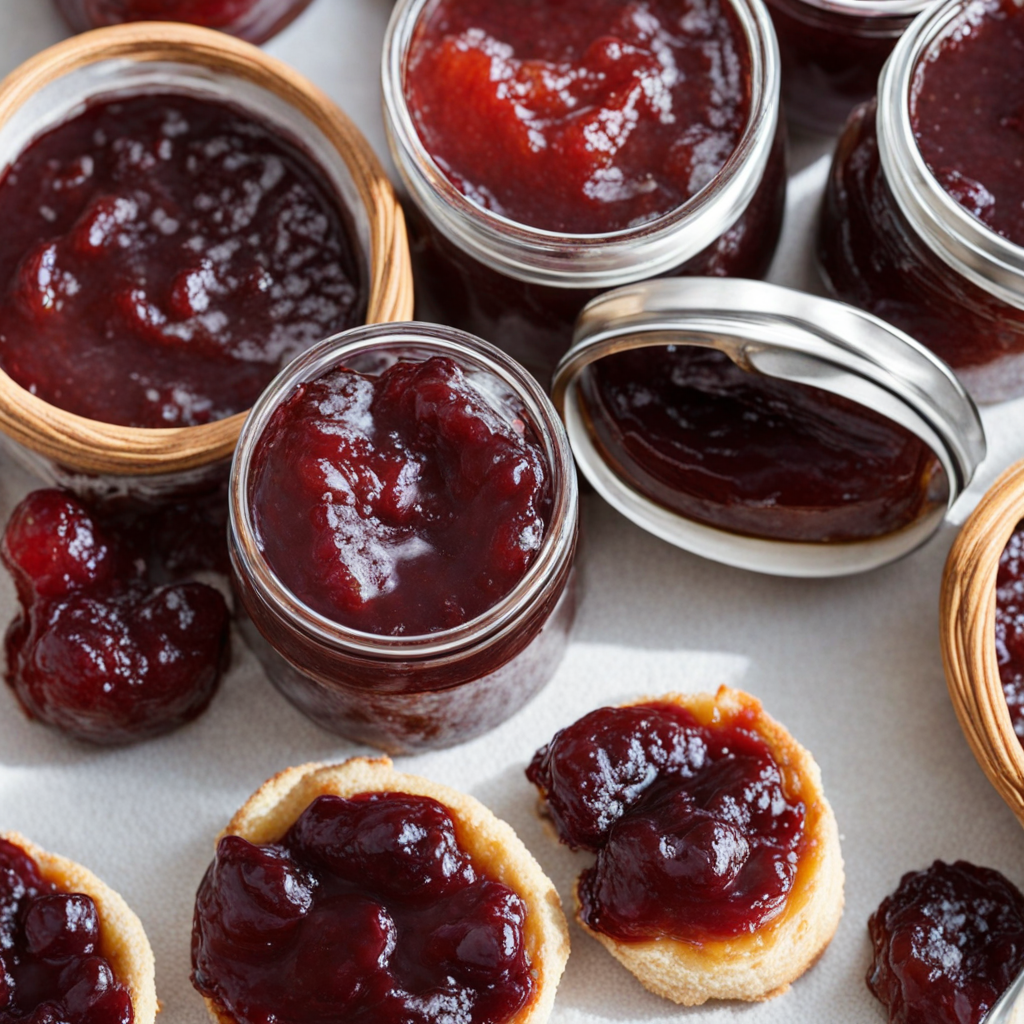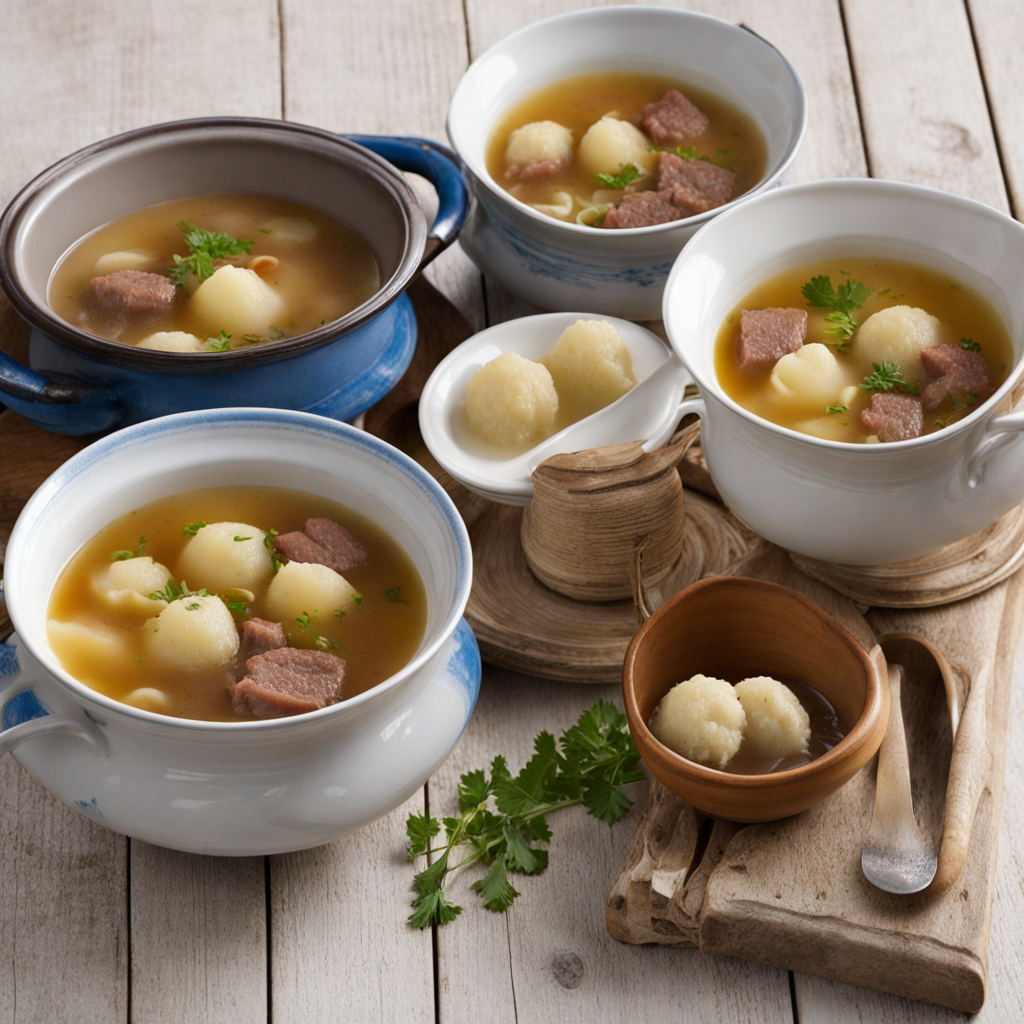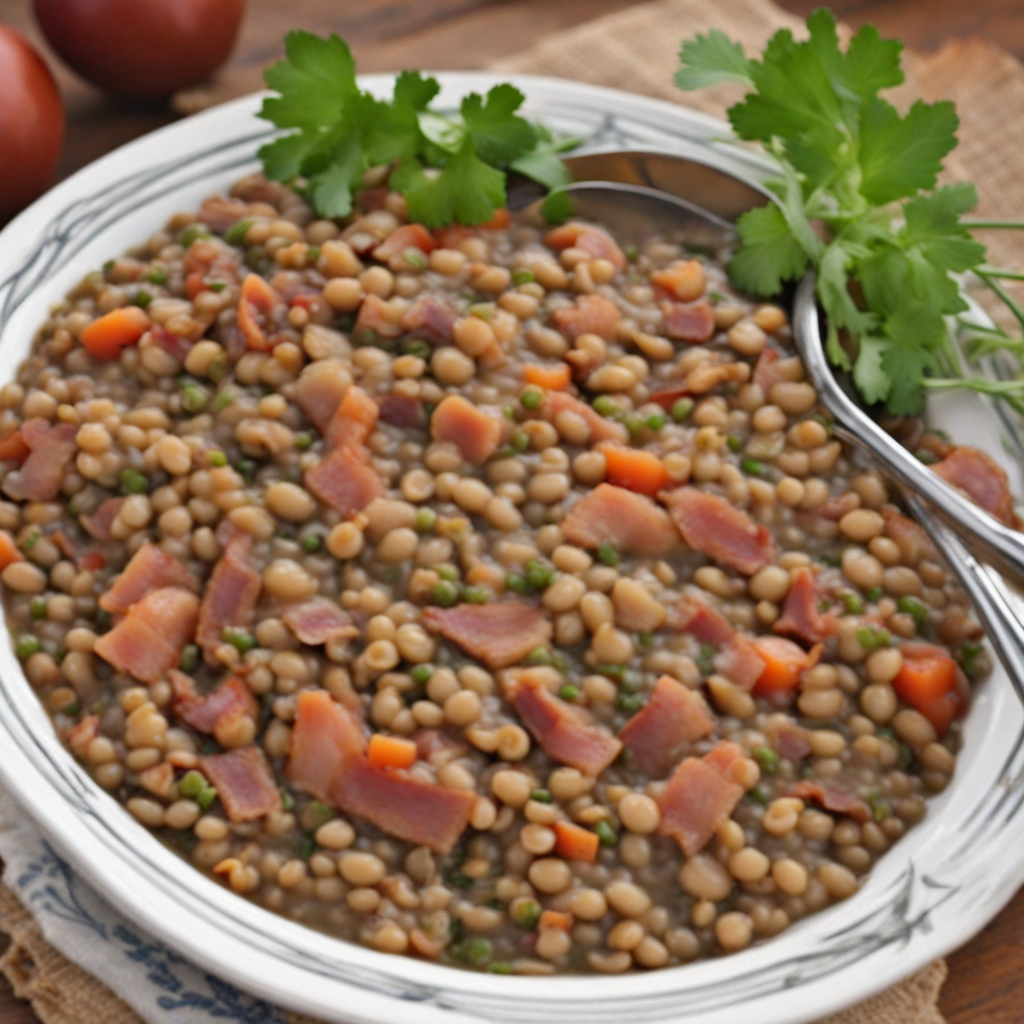Powidl
Powidl is a traditional Austrian fruit spread that captures the essence of autumn harvests in every jar. Made primarily from plums, it undergoes a slow cooking process that concentrates the flavors, resulting in a rich, dark-purple spread with a velvety texture. Unlike many fruit preserves, Powidl doesn’t contain added sugar, allowing the natural sweetness of the plums to shine through. The unique preparation method caramelizes the sugars present in the fruit, creating a deep, complex flavor profile that balances sweetness with a hint of tartness, making it a delightful addition to various dishes. This luscious spread is not only a staple on Austrian breakfast tables but also serves as a versatile ingredient in numerous recipes. It pairs beautifully with buttered bread or fresh pastries, offering a perfect complement to morning coffee or tea. Moreover, Powidl is often used in traditional pastries like strudels and dumplings, where it adds a burst of fruitiness and depth. Its ability to enhance both sweet and savory dishes makes it an exciting ingredient to experiment with in the kitchen, whether dolloped on pancakes or incorporated into savory sauces. For those looking to explore new culinary horizons, Powidl also lends itself to modern interpretations. Chefs and home cooks alike have begun to incorporate this flavorful spread into gourmet dishes: think Powidl-infused glazes for meats, or elegant charcuterie boards featuring artisanal cheeses and cured meats. Its unique flavor profile can elevate simple meals and bring a taste of Austrian tradition to diverse culinary creations. With its depth, versatility, and rich history, Powidl is an exceptional find for anyone eager to discover the nuanced flavors of Austrian cuisine.
How It Became This Dish
The Story of Powidl: A Sweet Tradition from Austria #### Introduction Powidl, a traditional Austrian fruit preserve, is more than just a delicious spread; it is a symbol of culinary heritage that reflects the history, culture, and agricultural practices of the regions from which it hails. Made primarily from plums, particularly the variety known as "Zwetschken," Powidl is characterized by its deep, rich flavor and velvety texture, achieved through a slow cooking process that concentrates the natural sugars of the fruit. This article explores the origins, cultural significance, and evolution of Powidl over time. #### Origins: A Plum's Journey The history of Powidl can be traced back to the Austro-Hungarian Empire, where plums were a staple fruit cultivated in the fertile regions of modern-day Austria, Hungary, and Slovakia. The word "Powidl" likely derives from the Old Slavic term "povidlo," which means "to spread." Historical records indicate that the preservation of fruits through cooking has been a practice for centuries, with Powidl emerging as a method to utilize the abundant plum harvests, particularly in the late summer and early autumn. The making of Powidl is a time-honored tradition, with families often gathering to prepare large batches in the late summer when plums are at their peak ripeness. The process involves washing, pitting, and then cooking the fruit slowly over low heat, often in a copper pot, until it thickens into a rich, dark spread. This labor-intensive method allows the natural sugars to caramelize, resulting in a complex flavor profile that sets Powidl apart from other fruit preserves. #### Cultural Significance: A Taste of Tradition Powidl is more than just a condiment; it has deep cultural significance in Austrian and Central European cuisine. It is often associated with traditional dishes, such as "Powidltascherl," which are dumplings filled with the sweet plum spread. Powidl is also used as a filling for pastries, strudels, and cakes, showcasing its versatility and importance in baking. In Austria, Powidl has become a staple during festive occasions and family gatherings. It is commonly served with various meats, particularly with the traditional dish of "Kaiserschmarrn" – a fluffy, shredded pancake that pairs beautifully with the sweetness of Powidl. The preservation of this fruit spread is a cherished practice, passed down through generations, ensuring that the flavors of summer can be enjoyed long into the colder months. Furthermore, Powidl is often linked to regional festivals and celebrations. In many areas, local communities hold plum festivals where Powidl takes center stage, celebrating the harvest and the artisanal methods of production. These events not only highlight the importance of local agriculture but also foster a sense of community and shared heritage. #### Development Over Time: From Tradition to Modernity As with many traditional foods, the preparation and consumption of Powidl have evolved over time. In the past, making Powidl was a communal activity that involved entire families and neighbors, emphasizing the importance of collaboration and shared culinary knowledge. However, as lifestyles changed and urbanization increased, the practice of making Powidl became less common in many households. In response to these shifts, artisanal producers and small-scale farmers began to step in, ensuring that the tradition of Powidl-making continued. Many of these producers focused on using organic and sustainably grown plums, honoring the traditional methods while also adapting to modern tastes and preferences. This revival of artisanal Powidl production has led to a renewed interest in the product, both within Austria and abroad. Today, Powidl can be found in gourmet shops and markets, often packaged in beautifully designed jars that emphasize its artisanal quality. Many producers now offer variations, incorporating spices such as cinnamon or cloves to enhance the flavor profile, or blending it with other fruits to create unique combinations. This innovation has attracted a new generation of consumers who appreciate the balance of tradition and modernity. #### Powidl in the Global Context The rise of interest in Powidl is part of a broader trend toward preserving traditional foodways in a globalized world. As people become more conscious of their food sources and the importance of sustainability, products like Powidl resonate with those seeking authentic culinary experiences. It serves as a reminder of the deep connections between food, culture, and place. Internationally, Powidl has found its way into gourmet kitchens and trendy cafes, often featured as a filling in pastries or paired with artisanal cheeses. This adaptation has broadened its appeal, allowing it to transcend regional boundaries while still retaining its traditional roots. #### Conclusion: A Sweet Legacy The history of Powidl is a testament to the richness of Austrian culinary traditions. From its humble beginnings as a method of preserving the bountiful plum harvest to its status as a beloved food item enjoyed by many, Powidl encapsulates the spirit of the regions it comes from. It serves as a bridge connecting generations, a celebration of community, and an embodiment of the seasonal rhythms of life. As we continue to explore and appreciate the foods that shape our cultural identities, Powidl stands out as a symbol of resilience and adaptation. It reminds us of the importance of preserving culinary traditions in an ever-changing world, ensuring that the flavors of the past continue to be savored by future generations. Whether spread on a slice of fresh bread, used in a decadent dessert, or enjoyed with a savory meal, Powidl remains an enduring favorite, sweetening the lives of those who cherish its rich heritage.
You may like
Discover local flavors from Austria







